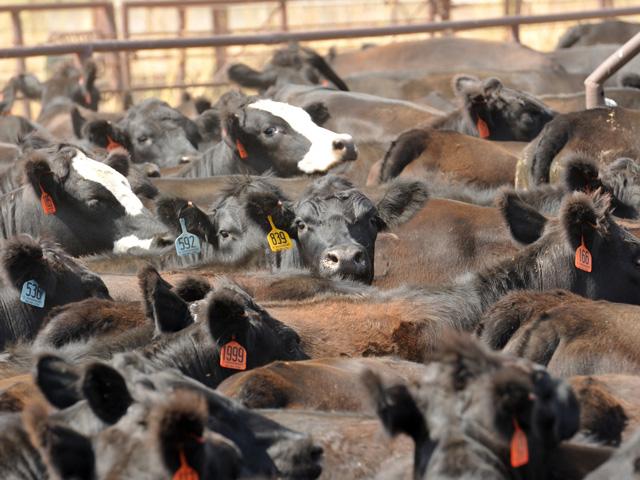Colorado CAFO Monitoring Battle Rages
Environmentalists Want Colorado Officials to Monitor CAFO Groundwater in General Permit
LINCOLN, Neb. (DTN) -- A multi-year battle about whether to require concentrated animal feeding operations in Colorado to monitor groundwater as part of the state's general water permit has now found its way to court.
The Colorado Department of Public Health and Environment issued a final order on April 23, 2024, reversing a previous ruling by an administrative law judge who said the state should require more groundwater monitoring for CAFOs.
The ruling came about as a result of an appeal filed by the Colorado Livestock Association.
Environmental groups now have asked a court to decide whether the state's general permit under the National Pollution Discharge Elimination System, or NPDES, requires groundwater monitoring as effluent discharges.
Among the conclusions reached by the state agency is that groundwater monitoring is not required by the general permit because certain "facts are not present in this record."
In a lawsuit filed on May 23, 2024, in the Larimer County District Court, the Center for Biological Diversity and Food and Water Watch asked the court to declare the state's general permit to be unlawful.
They asked the court to vacate the Colorado Department of Public Health and Environment's action and to send back the general permit to the agency to then include monitoring provisions.
During the administrative hearing, the environmental groups pointed to a recent and related decision by the U.S. Court of Appeals for the Ninth Circuit.
P[L1] D[0x0] M[300x250] OOP[F] ADUNIT[] T[]
In Food and Water Watch v. EPA, the Ninth Circuit ruled the state of Idaho's general permit was unlawful because it did not require monitoring of underground discharges.
The Colorado Department of Public Health and Environment concluded in the recent administrative hearing that the "record contains no facts that require or warrant the same outcome" as the Idaho case.
The agency said that's because public interest groups in the Colorado case "did not allege and presented no evidence to establish more specific location of CAFOs, their distance to surface water, relation to the identified portions of impaired waters, or geological factors specific to Colorado where CAFOs are located."
The Colorado Livestock Association said in a statement following the state's decision that it was the "right result for livestock-raising families in Colorado."
The association said it "preserves a permitting system that protects our state's natural resources while maintaining economic viability" for agriculture in the state.
The state of Colorado operates under a federal general permit for CAFOs designed to regulate discharges from about 102 of the state's largest livestock operations.
The Center for Biological Diversity filed administrative appeals in October 2021 and June 2022, challenging the state's decision to not include groundwater monitoring and reporting provisions as part of the general permit.
In the new lawsuit, the environmental groups said Colorado's general permit "establishes unambiguous water pollution limits for concentrated animal feeding operations" across the state.
"But CDPHE has made these pollution limits, known as 'effluent limitations,' unenforceable by failing to include representative monitoring and reporting provisions in the permit," the lawsuit said.
"Failure to include these provisions renders the permit ineffective at protecting Colorado's waters and unlawful under the federal Clean Water Act and Colorado Water Quality Control Act."
In a news release announcing the lawsuit, the environmental groups said CAFOs are becoming larger and emitting more pollution in Colorado.
Food and Water Watch said it found Colorado CAFOs produce about 34 billion pounds of manure each year, or more than four times the amount produced by the state's human population.
The average Colorado feedlot confines nearly 13,000 beef cattle -- an increase of nearly 80% in the past 20 years, according to Food and Water Watch. The average Colorado dairy herd size has more than doubled to about 3,000 cows during the same period.
"Colorado factory farms generate billions of pounds of dangerous waste that threatens waterways every year, yet the state is taking a see-no-evil approach to regulating this industry," said Tyler Lobdell, staff attorney for Food and Water Watch.
"Ignoring pollution does nothing to protect clean water and public health. Comprehensive pollution monitoring for Colorado's factory farms is imperative -- after all, you can't control what you don't measure."
Todd Neeley can be reached at todd.neeley@dtn.com
Follow him on social platform X @DTNeeley
(c) Copyright 2024 DTN, LLC. All rights reserved.




